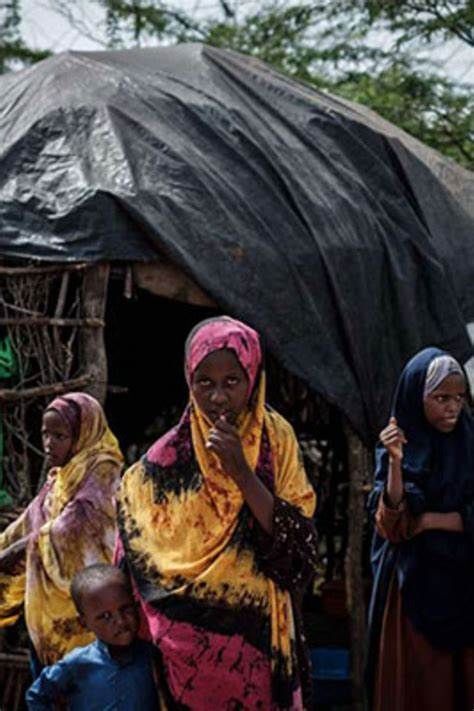
Global hunger to worsen with end of grain deal
BY EVELYNE MUSAMBI
Associated Press
Dadaab, Kenya - Abdikadir Omar was trapped in an extremist-controlled town in Somalia for years until May, when he slipped out to make a 12-day journey with his wife and seven children to neighboring Kenya in search of food and safety.
To his surprise, “I found peace but no food,” the 30-year-old told the Associated Press. He stood near the withered maize he tried to plant around his family's makeshift shelter of branches and plastic sheeting outside one of the world's largest refugee camps.
As global food insecurity suffers another shock with Russia's termination of a deal to keep grain flowing from Ukraine, the hundreds of thousands of Somalis who have fled climate change and insecurity offer a stark example of what happens when aid runs low.
Omar, a farmer, was forced to give most of his produce as tax to al-Shabab, the al-Qaida-linked extremists who have controlled parts of Somalia for years, and the little that remained wasn't enough to feed his family during Somalia's worst drought in decades. The final blow came when al-Shabab, under pressure from a Somali military offensive, killed his younger brother.
Omar and his family joined a new wave of Somalis on the run. They were among 135,000 new refugees who arrived at Dadaab in recent months and eventually were allowed to access food aid when the Kenyan government resumed refugee registrations in February at the camp 55 miles from the Somali border.
Dadaab is home to more than 360,000 registered refugees and many unregistered ones. The camp was established in the 1990s, its permanence reflected in the neat rows of corrugated iron homes in its older sections.
Food rations, however, are more fragile. They have been cut from 80% of the minimum daily nutritional requirement to 60% due to reduced donor funding, according to the World Food Program.
Traditional donors have been quick to bring up hunger in places like Somalia when criticizing Russia for ending the grain deal, however they have focused their giving elsewhere, including Ukraine. In May, a high-level donors' conference for Kenya, Somalia and Ethiopia raised less than $3 billion of the $7 billion that organizers wanted for humanitarian aid. Refugee camps like Dadaab, especially in Africa, will see further cuts in aid because of Russia's action, the WFP's executive director, Cindy McCain, told the AP on Tuesday. Under the recently ended deal, WFP was procuring 80% of its global wheat supply from Ukraine.
“There are going to be some serious shortages and, in some cases, none at all as a result of this,” she said, adding that it was too soon to predict what those cuts would be.
Already, “families that used to prepare probably three meals a day have now reduced to prepare either two meals or a meal a day, and that's quite extreme,” the WFP head of programs at Dadaab, Colin Buleti, told the AP at a food distribution center during a visit last week.
Families receive monthly rations of sorghum, rice, beans, maize and vegetable oil, alongside a cash transfer for buying fresh produce that has been halved to $3.
Aid workers say the reduced rations are likely to worsen malnutrition. In one of Dadaab's three sections, Hagadera, 384 malnutrition cases were reported in the first half of the year, already exceeding the 347 reported there all of last year, according to the International Rescue Committee, which provides health services.
Refugee camps like Dadaab in Kenya will see further cuts in aid because of Russia's action, said Cindy McCain, executive director of the World Food Program. Brian Inganga / AP

